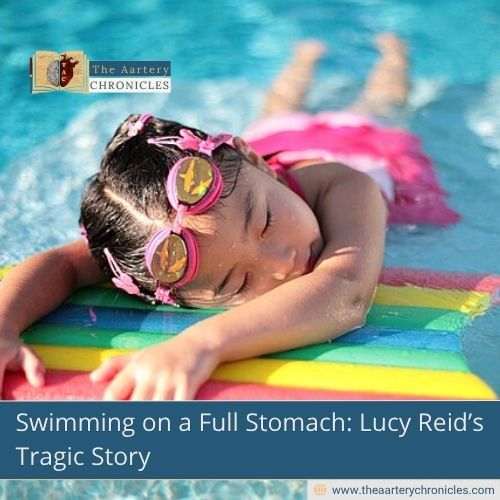

Swimming on a Full Stomach: Lucy Reid’s Tragic Story
Swimming is often a fun and relaxing activity, especially during summer trips. However, the unfortunate death of a teenage girl serves as a heartbreaking reminder of the serious risks involved when swimming on a full stomach.
What Happened to Lucy Reid?
On June 23, 2023, 15-year-old Lucy Reid was visiting Cleethorpes with her family and friends. After enjoying a substantial lunch of pizza and chips, Lucy and a friend decided to go for a swim in the River Humber. Despite her mother advising her to wait for the food to settle, Lucy entered the water shortly after eating.
As the tide began to shift, Lucy and her friend found themselves drifting away from the shoreline. They were not strong swimmers and soon found it difficult to stay above water. After about 30 minutes in the river, Lucy tried to swim back to a shallower area. Unfortunately, during this effort, she began vomiting, inhaled some of the stomach contents, and lost consciousness.
Medical Cause of Death
Lucy was rescued from the river approximately three hours later. Emergency responders rushed her to the hospital, but tragically, she was declared dead. The post-mortem examination revealed that she died from asphyxia caused by inhaling gastric contents, a condition where stomach contents enter the lungs, blocking the airway and cutting off oxygen.
Understanding the Risks of Swimming After Eating
Many people have heard that swimming on a full stomach can be dangerous, and this case provides a sobering example. After eating, the body focuses blood flow on the digestive system. If someone engages in physical activity like swimming too soon, it can lead to muscle cramps, nausea, vomiting, and even drowning if the person cannot stay afloat.
Furthermore, the body’s reflex to vomit while in the water increases the risk of inhaling food particles, which can lead to choking or aspiration pneumonia, both of which can be fatal if not immediately addressed.
How Tides and Swimming Ability Played a Role
Tide movement was also a major factor in this incident. According to the Maritime and Coastguard Agency, tides can shift quickly and unexpectedly. In Lucy’s case, a falling tide carried her and her friend further away from the shore, making it difficult to return.
Additionally, neither girls were a strong swimmers. This reduced their ability to manage fatigue, navigate the water safely, or handle emergencies, especially under distress.The diaries and videos reportedly reveal that Alpeshbhai had been mentally distressed and emotionally overwhelmed by repeated marital conflicts and suspicions of infidelity.
Conclusion
The heartbreaking loss of Lucy Reid is a powerful reminder of how everyday decisions, like swimming on a full stomach, can have unexpected and devastating consequences. By raising awareness and practising simple safety habits, similar tragedies can be prevented in the future.
Source: Inputs from various media Sources
I’m a pharmacist with a strong background in health sciences. I hold a BSc from Delhi University and a pharmacy degree from PDM University. I write articles and daily health news while interviewing doctors to bring you the latest insights. In my free time, you’ll find me at the gym or lost in a sci-fi novel.
- Priya Bairagi
- Health News and Updates,People Forum
- 2 August 2025
- 22:00








